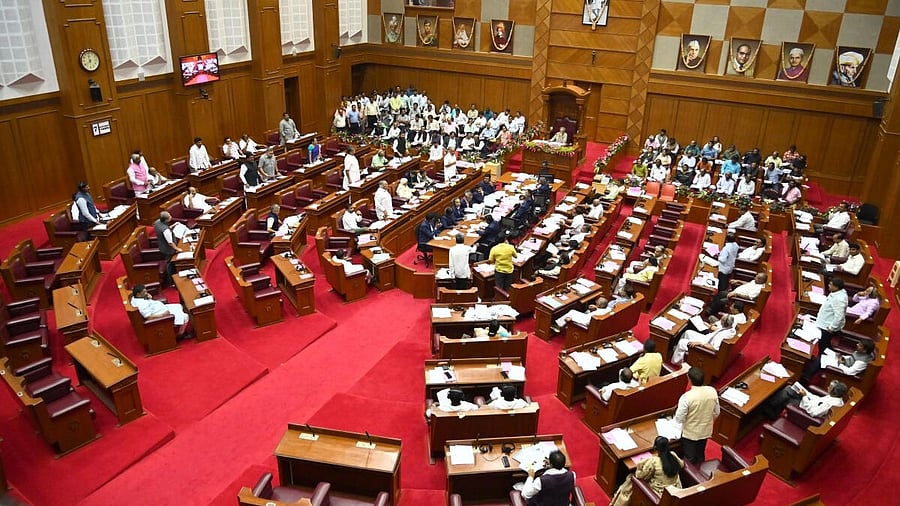
Karnataka Assembly winter session
Credit: DH Photo
Bengaluru: The Karnataka government has prepared a draft Gig and Platform Workers Bill which it plans to table in the next session of the Legislative Assembly, and bring into force in the next fiscal.
According to Manjunath Gangadhara, Additional Labour Commissioner (Industrial Relations), Government of Karnataka, consultations are on with various stakeholders in the sector, to fine-tune the draft bill.
“The bill is a comprehensive legislation which will focus on regulating the working and service conditions of the workers and also collecting the cess from the aggregators,” Gangadhara underscored.
According to the Social Security Code of 2020, a 1-2 per cent cess is to be levied on the annual turnover of the aggregator. However, in this bill, the government is considering a cess on the number of deliveries done through the aggregator platforms, Gangadhara added.
The bill will also establish a fund through the Gig and Platform Workers Welfare Board to provide social security and protection to gig workers, in line with Rajasthan’s gig workers law.
This comes after Chief Minister Siddaramaiah, in the July budget this year, announced the implementation of insurance cover worth Rs 4 lakh to each gig worker in Karnataka. “The portal is now ready for the gig and platform workers to register themselves. The CM will inaugurate it on December 16 in Dharwad,” Gangadhara revealed.
The Bangalore Chamber of Industry and Commerce (BCIC) conducted a consultative session on the notification where industry representatives including Ola, Uber, Flipkart, Zomato, Dunzo, FreshOn, Zepto, OMI Foundation, Wadhwani Institute of Technology, Unorganised Workers’ Social security Board among others were present. The next in line for consultations are the trade unions among gig and platform workers, Gangadhara said.
“Most of the aggregators, particularly the ride-sharing aggregators, were not forthcoming with appropriate data, which is a main challenge. Without data and information, the government cannot bring out an effective policy,” Gangadhara said. The key discussion areas included a clear definition of a gig worker, social security for gig workers, utility of the welfare fund, incentives, financial levy mechanisms, and a fair distinction between the ride-sharing space and the third-sided marketplace.
“This ground-breaking legislation not only mandates extensive accident and life insurance coverage but also establishes clear definitions, fostering an inclusive approach that recognises the diverse nature of gig work. Addressing employment status distinctions, benefit portability and platform obligations, the bill reflects a forward-looking stance on the evolving gig economy,” said said Pratik Vaidya, managing director and chief vision officer of HR, staffing and compliance firm Karma Global. Provisions have been made for collective bargaining, transparent registration processes and stringent penalties for non-compliance, he added.